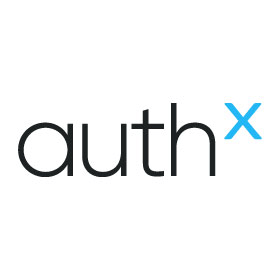Notifications

4 minutes, 38 seconds
-17 Views 0 Comments 0 Likes 0 Reviews

In today’s digital landscape, protecting user identities and securing access to sensitive systems is a top priority for organizations. Multi-Factor Authentication (MFA) has become a crucial layer of defense, ensuring that users present multiple forms of verification before gaining access. Modern MFA solutions are evolving beyond static, rule-based systems to offer features like delegated authentication and adaptive access control—two technologies that significantly boost both security and usability.
Delegated authentication refers to outsourcing the authentication process to a trusted identity provider (IdP) such as Azure Active Directory, Okta, or Google Identity. Instead of managing user credentials internally, applications rely on these providers to authenticate users. This approach reduces security risks, simplifies password management, and supports Single Sign-On (SSO) across multiple platforms.
Adaptive access control evaluates various risk factors—such as user behavior, device health, geolocation, and time of access—to determine the level of authentication required. If a login attempt appears suspicious, the system can escalate the authentication process (e.g., require biometric input or a one-time passcode). This dynamic approach ensures that access policies remain flexible and context-aware.
Okta Adaptive MFA
Okta is a leader in identity and access management. Its Adaptive MFA offers powerful capabilities such as risk-based authentication, device context analysis, and geolocation monitoring. It supports delegated authentication via integrations with enterprise identity providers and allows seamless SSO. Administrators can configure detailed policies that adapt based on user behavior and access context.
Microsoft Entra ID (formerly Azure AD)
Microsoft’s Entra ID includes robust MFA features integrated with conditional access policies. It supports delegated authentication for Microsoft 365 and third-party applications, and adaptive access controls through Conditional Access. Risk-based adaptive authentication responds to real-time threat intelligence from Microsoft Defender, providing high accuracy in risk detection.
Ping Identity
PingOne MFA offers flexible deployment options (cloud or hybrid) and supports delegated authentication via SAML, OIDC, and SCIM protocols. It features intelligent adaptive access using machine learning models to evaluate login context. The solution is highly customizable and integrates with a wide range of enterprise systems.
Duo Security (Cisco)
Duo’s MFA solution emphasizes ease of use and broad integration capabilities. It offers delegated authentication via SSO platforms and provides adaptive access features that evaluate endpoint health and user location. Duo’s "Policy Engine" allows fine-grained control over access based on risk and compliance requirements.
ForgeRock Identity Platform
ForgeRock delivers enterprise-grade identity management with strong support for adaptive MFA and delegated authentication. It leverages AI-powered risk analytics to make real-time decisions during login attempts. Its modular architecture makes it suitable for complex, large-scale deployments.
The best MFA solutions are those that balance security, user experience, and adaptability. Delegated authentication simplifies credential management while maintaining high security standards. Adaptive access control ensures that authentication challenges are appropriate to the context of each login attempt. Solutions like Okta, Microsoft Entra ID, Ping Identity, Duo, and ForgeRock are at the forefront of this evolution—empowering organizations to protect their digital assets while enabling secure, seamless access for users.

